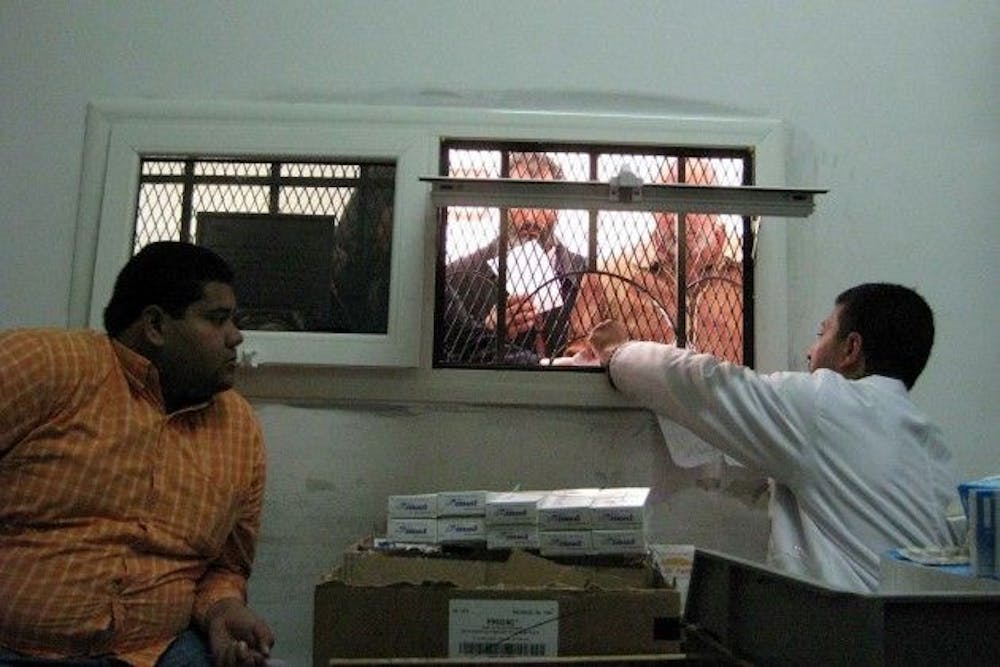Fatma, a tall, brown-eyed mother of five, was cured of a bipolar disorder for eight years, long enough that doctors closed her medical file. The war in eastern Libya, however, has stirred up those old torments.
In Ajdabiya, a flash-point town where forces loyal to dictator Moammar Gadhafi waged a terrifying assault against rebels, Fatma locked herself and her children in their home for five days. When rumors spread through town that Gadhafi had recruited foreign fighters, Fatma was gripped with such fear that she couldn't stop shouting, "The mercenaries are coming!"
She's one of a growing number of Libyan civilians who bear invisible scars from a conflict that's stretched for two months: the psychological trauma of a seemingly unending cycle of street battles, artillery barrages, coalition airstrikes, government propaganda, economic upheaval and extreme uncertainty.
Doctors in Benghazi, Libya's second largest city and the capital of the rebel east, say that visits to the psychiatric hospital there have increased 50 percent since the revolt against Gadhafi's nearly 42 years of one-man rule began in mid-February. The patients comprise relapsed victims of mental illness, such as Fatma, as well as people who are experiencing symptoms for the first time.
Compounding the pain is the difficulty of reaching Benghazi for treatment amid the constant fear of attacks, as well as a shortage of medication because the main supply line from the capital, Tripoli, now runs through a war zone.
Patients also must confront the stigma that accompanies mental illness in traditional societies such as Libya's, which is why their full names are being withheld in this story to protect their privacy.
"We've seen a lot of people suffering from stress disorders," said Dr. Ali El Roey, the urbane, British-educated head of the Benghazi Psychiatric Hospital, the only such facility in eastern Libya.
There's Majid, the 25-year-old who lost a leg in a factory accident but joined the rebel army anyway and now suffers night terrors after burying comrades who were killed in vicious battles in the oil towns of Brega and Ras Lanouf.
There's Thuraya, the pretty, long-lashed 24-year-old from the town of Bin Jawwad, the site of fierce clashes last month, whose mother brought her to the hospital after she began proclaiming that she was "a political figure."
"She became delusional," said her mother, Raja, a squat woman whose face is lined with worry. "She couldn't fathom what was happening around her. She was shouting, hitting the walls, crying, talking nonsense."
Doctors also had to battle a propaganda war by the Gadhafi regime that took direct aim at the hospital. In the early days of the conflict, Libyan state news media based in the western capital, Tripoli, spread rumors that mental patients had escaped from the Benghazi hospital, to sow fears of chaos in the east.
"They said patients went out and were wandering in the streets, killing people," Roey said. "They said that female patients had been raped and that the pharmacy was spreading drugs among the children."
Roey had to go on a local radio station to dispel the rumors.
His clean, simple facility — a collection of low-slung concrete blocks in an industrial-looking section of Benghazi — is running low on medication. Even after drug donations from regional and international aid agencies, trucked in through the open border with Egypt, doctors are giving patients only two-week supplies rather than the usual month's worth.
Some relapsed patients have had to go on new medication because the drugs that stabilized them aren't available anymore, doctors said.
Fatma, the mother of five, left Ajdabiya with her family and moved to four different towns before she ended up in Benghazi. She's able to visit her doctors now, and with medication her appetite has returned and her nerves calmed.
"I'm feeling OK now," she said. "It feels safe here."




